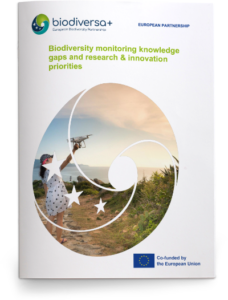Biodiversa+ supports a better and stronger involvement of citizens in biodiversity monitoring schemes.
In this context, Biodiversa+ identified knowledge gaps and research priorities related to the testing and application of new tools, technologies and approaches for biodiversity monitoring by researchers (including approaches like citizen science) and the use of monitoring data by research & innovation (R&I) in early 2022.
These knowledge gaps were listed in a report which then fed the development of the BiodivMon research call on “Improved transnational monitoring of biodiversity and ecosystem change for science and society”.
In addition, a workshop was organised on 16 February 2023 that aimed to support citizen science approaches in biodiversity monitoring by identifying bottlenecks and challenges preventing a better use of citizen science in biodiversity monitoring. The workshop tackled themes such as governance models for data curation and the valorisation of citizen science investment in biodiversity monitoring. Representatives from citizen science initiatives (including iNaturalist), biodiversity monitoring programme involving citizens, Biodiversa+ partners and members of the Biodiversa+ Enlarged Stakeholder Board attended the workshop.
The workshop participants identified several bottlenecks faced by citizen science approached in biodiversity monitoring including:
- Concerns related to safety and data privacy from citizens and on the other hand, data privacy and data licences that may hinder the usage of data and long-term running of a biodiversity monitoring citizen science platform
- Lack of resources including lack of funds to keep citizen science user-friendly platforms running in the long-term and animate a citizen science project, a need to involve more citizens, a lack of knowledge from citizens, a lack of experts to validate citizen science data.
- Data which might be of poor quality / reliability due to: diverging taxonomies, observation gaps, methods and protocols that need to be improved, lack of common data standards and standardisation, a lack of validation process, a need to use correct statistical analysis. More globally difficulties to manage biodiversity monitoring data were raised.
- Sometimes a negative perception of citizen science by policy makers and researchers and a lack of credits for the citizens collecting data.
- A difficulty to transfer local citizen science data to global datasets.
- Governance challenges due to a fragmentation of the citizen science landscape and the lack of long-term support for the involvement of citizens in biodiversity monitoring programmes by decision makers.
- Lack of biodiversity citizen science data use in research and decision making due to a difficulty to match global data need and citizens interest.
For more information, you can watch the recording of the workshop on the Biodiversa+ YouTube channel.
